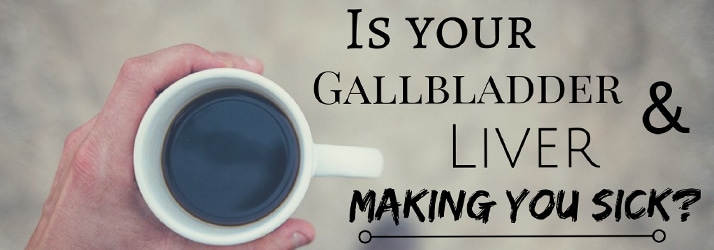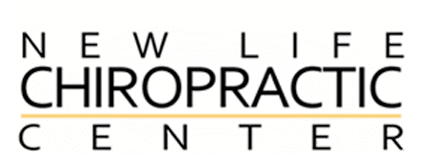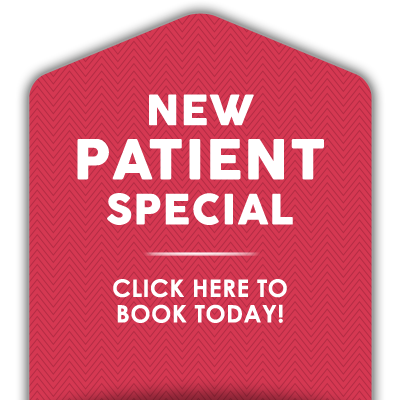Time to Consider your Liver and Gallbladder
Time to Consider your Liver and Gallbladder

It's time to consider the liver and gallbladder. They may be "accessory" digestive organs, but they're still vital for digestion and many other functions of your body. You can call them the "dynamic duo of digestion." We are here to help at New Life Chiropractic in Fort Wayne, In.
When it comes to liver health, most people will associate an unhealthy liver with drinking too much alcohol. So, if you're not a heavy drinker, you should be fine, right? Well, there is so much more to liver health than that. Did you know that your liver plays an essential role with digestion, metabolism, protein synthesis, healthy hormones, immunity, detoxification, as well as blood filtration? It's also a storage site of many essential nutrients, including vitamins A, D, E, and K, copper, and iron.
The liver, one of the largest organs in the body, deserves a lot of respect. It is one hard-working, multi-tasking organ with, at the least, 500 complex responsibilities. Is your liver well-equipped to handle this dizzying load of tasks and do its job well? We live in a toxic world. Add the daily stresses of life, poor posture, and a diet that leaves much to be desired to the picture, and you may have a damaged, overloaded, or congested liver with compromised function.
That's right, if you want strong, healthy digestion, your liver must be able to function at its best. The small intestine, for example, relies on the activities of the liver and the gallbladder to carry out digestion. The liver's digestive role is to produce bile. The gallbladder stores, concentrates, and delivers bile when it's needed.
Bile: Why it's worth your while
Why does your liver bother to secrete a whopping one liter of bile each day? Bile is needed to digest any fats eaten. Bile acts much like a detergent that emulsifies fat, breaks it into smaller globules, and then aids in fat absorption.
So, we know bile helps with digestion of fats. Why is fat digestion important though? Fat digestion is essential in order to digest fat-soluble vitamins, including vitamin A, D, E, and K. What happens if you aren't digesting fat properly? You aren't digesting foods properly. This can cause serious absorption problems with key vitamins for your immune system, bone health, brain health, and nervous system health.
The Liver in All its Glory
The LIVER does a ton of other stuff too. What does it feel like to have your liver functioning at its fullest potential? Remember, the liver is like your digestive system's control center. It processes everything you eat, drink, inhale, or even apply to your skin. Everything that reaches the liver is either circulated and stored or detoxified and flushed away.
A liver working at its prime will break down fats into useable energy, clean the blood of old or damaged cells and excess hormones that could cause hormonal imbalances, and constantly ensure you have the correct amount of nutrients flowing through your blood so that they can work for your body. It will ensure your blood sugar levels are steady between meals and while you're fast asleep.
Would you want to see any of these processes slow down or get sluggish?
Your choices can make a great difference in how quick your liver can recognize and detoxify a toxic invader or how well it can filter your blood to flow clean and smooth as it delivers nutrients to the rest of your body. If your liver effectively filters your blood of toxins, wouldn't you expect clearer skin as your body pumps nutrient-rich, clean blood to your skin?
Did you know: If the liver didn't do its job, you could die in just one day!
- Did you know: 30 million Americans are or have been affected by liver or gallbladder disease. Could you be one of the millions of Americans who have liver disease and don’t know it? Liver disease and cirrhosis are the 7th leading cause of death among adults between the ages of 25 and 64 in the US. Unfortunately, liver disease is a “silent” disease--there are often no obvious symptoms until serious damage has occurred.
What are signs your liver function is compromised?
If something is amiss with your liver, your body will definitely let you know. Do you or someone you know suffer from irritability, difficulty sleeping, nausea, vomiting, low appetite, dark brown urine, jaundice, gallstones, dry skin, dark patches on skin, poor eyesight, depression, fatigue, headaches, food allergies, burping after meals, smelly gas, bloating, bruising easily, confusion, excessive sweat, environmental sensitivities, or pain in the right upper belly?
Are you experiencing any of these body signals associated with poor liver function? These recurring symptoms can affect your productivity at work. Do you eat each meal with fear of uncomfortable and embarrassing symptoms possibly appearing again? Are they interfering with all your social events, dinner parties, and family outings?
The good news is that your body has the ability to heal on its own. How can you keep your nerves balanced and these precious organs in tip-top shape?
- Is the food you're eating putting an extra burden on your liver? Steer clear of processed foods, refined grains, added sugars, and artificial additives. Invest in whole foods, especially leafy greens, fresh herbs, fruits, vegetables, and healthy proteins.
- Liver health is more than making wise food choices, though. Being that the nervous system is responsible for controlling the direct functions of the liver and gallbladder, any problems with the nervous system can cause problems with these organs. You want to always make sure your spine and nerve system are at their best. The most effective way of doing so is through your regular, specific, scientific, corrective chiropractic care.
- Obesity is linked to fatty liver disease and can lead to scarring or cirrhosis of the liver and even liver cancer or liver failure down the road. Keep your weight in check. Exercising at least 150 minutes per week, according to research, showed improvements in liver enzymes and associated conditions. What exercise is best for liver and kidney health? Virtually any exercise is better than no exercise at all.
- Avoid other risky behaviors such as abusing over-the-counter drugs like acetaminophen, a pain reliever that can cause damage if taken in large amounts over a small amount of time.
Now that we have a deeper appreciation for the liver, what can be said about the gallbladder? As seen earlier, there's plenty of reasons to want a fully functioning gallbladder. Unfortunately, gallbladder function can go downhill. Problems such as the formation of stones in the gallbladder or gallbladder inflammation (known as cholecystitis) can occur.
What are the tell-tale signs something is wrong?
Put simply, pain. Gallbladder pain is usually a gripping pain in the upper right abdomen near the rib cage but it can radiate to the upper back. If this pain is triggered by a large or fatty meal, it may be related to your gall bladder.
The pain could be caused by gallstones. Are you one of the 20-25 million Americans who have or will have gallstones? These small hard pebbles form when substances (such as cholesterol or calcium) in bile harden and can block the flow of bile in between organs.
What does it feel like to have gravel in your gallbladder? This blockage can cause symptoms to escalate to severe pain, inflammation, fever, or jaundice. Other symptoms include indigestion, gassiness, or an upset stomach, especially within minutes after a meal higher in fat. Some attacks from gallbladder stones have been reported to mimic heart problems.
Once formed, gallstones are tough to dissolve. What do most doctors recommend? Currently the main treatment is surgery. That's right, they remove the organ. Are you one of the 700,000 Americans that will have their gallbladder removed because of such problems? Life after surgery is not a walk in the park, though. Gallbladder removal comes with its own consequences. It sets a patient up for life-long, uncomfortable, embarrassing, and distressing digestive problems. Many post-surgery patients still report symptoms of digestive discomfort, such as gas, bloating, pain, nausea, and sensitivities to many foods.
Although others resort to drug therapies, even this path isn't promising since most meds aren't effective and gallstones typically start appearing again in half the users.
Gallbladder removal also ends up overloading the liver. The gallbladder is no longer there to store bile.
It's so much easier to prevent gallstones than to treat them. If your goal is to stay out of the operating room (and what a reasonable goal that is), there are steps you can take to support your gallbladder's health.
A healthy diet is your best defense!
Are you giving your gallbladder the best nutrients? Are you nourishing your liver?
For a healthy gallbladder:
- A low cholesterol and low fat diet is best.
- Avoid gallbladder problem foods. These include fried foods, hydrogenated oils, sugar, grain-fed and fatty protein sources. Focus on drastically reducing fructose (especially high fructose corn syrup) from your diet. Those seemingly harmless commercial foods like chips, fried foods, pizza, and cookies can congest the gallbladder like a partially blocked sewer. This is because of the bad oils and toxic chemicals inside.
Normally, your bile should be a thin consistency, like machine oil. Bad oils (especially hydrogenated or partially hydrogenated oils) cause bile to become thick and viscous like syrup. The longer bile sits around, the more time there is for cholesterol in the bile to crystallize into gallstones.
Is there anything you can replace those processed, chemically-loaded foods with? A low-fat diet is advisable to prevent gallstones. This doesn't mean you need to eliminate fat altogether. Simply avoid trans fats. Aim for monounsaturated fats like avocados, nuts, seeds, and fish.
Build your diet on a foundation of plant-based foods such as vegetables (especially beets, artichokes, and dandelion greens for better bile flow), fruits, legumes, lentils, and whole grains. These natural foods will reduce gallbladder distress. They are easier for the body to digest, which means they are easier on the gallbladder.
Many are susceptible to gallstones even with a healthy diet, though.
Regular exercise is also important. It's a great defense against one common cause of gallstones - obesity. This brings us to the next important step you can take: watch your weight. Avoid extreme weights associated with obesity but also extremely rapid weight loss and weight cycling associated with fad dieting. Rapid weight loss is also associated with gallstones.
For a healthy liver:
Same story here! Avoid those offending poisons so many companies sneak in or stuff their processed foods with such as refined grains, high-fructose corn syrup, added sugars, trans-fats, hydrogenated vegetable oils, alcohol, sugary fruit juices, GMOs, artificial sweeteners or colors, and other junk food.
Use turmeric in your favorite dishes to support a healthy liver. Include many plant-based foods such as cruciferous veggies, aromatics like garlic, onions, and leeks, as well as fermented veggies such as sauerkraut and dill pickles. Healthy fats such as avocado, coconut oil, or the fats in nuts and seeds blended with your favorite veggies help increase nutrient absorption.
Make sure to get your nervous system checked. Your nervous system controls every tissue, organ, and system in the body. Regular, systematic chiropractic care can help your whole body, including the gallbladder and all digestive organs, function properly.
What direction are you heading? Are you moving toward better whole body health or toward serious issues related to gallbladder and liver disease and dysfunction? Help your body resume its normal activities with a healthy diet, regular exercise, and a regular spine check.
Monday
9:00am - 11:00am
3:00pm - 6:00pm
Tuesday
5:30pm - 6:30pm
Wednesday
9:00am - 11:00am
3:00pm - 6:00pm
Thursday
9:00am - 11:00am
3:00pm - 6:00pm
By Appointment Only
Friday
Closed
Saturday
Closed
Sunday
Closed
New Life Chiropractic
2051 Reed Road
Fort Wayne, IN 46815
(260) 471-5433


